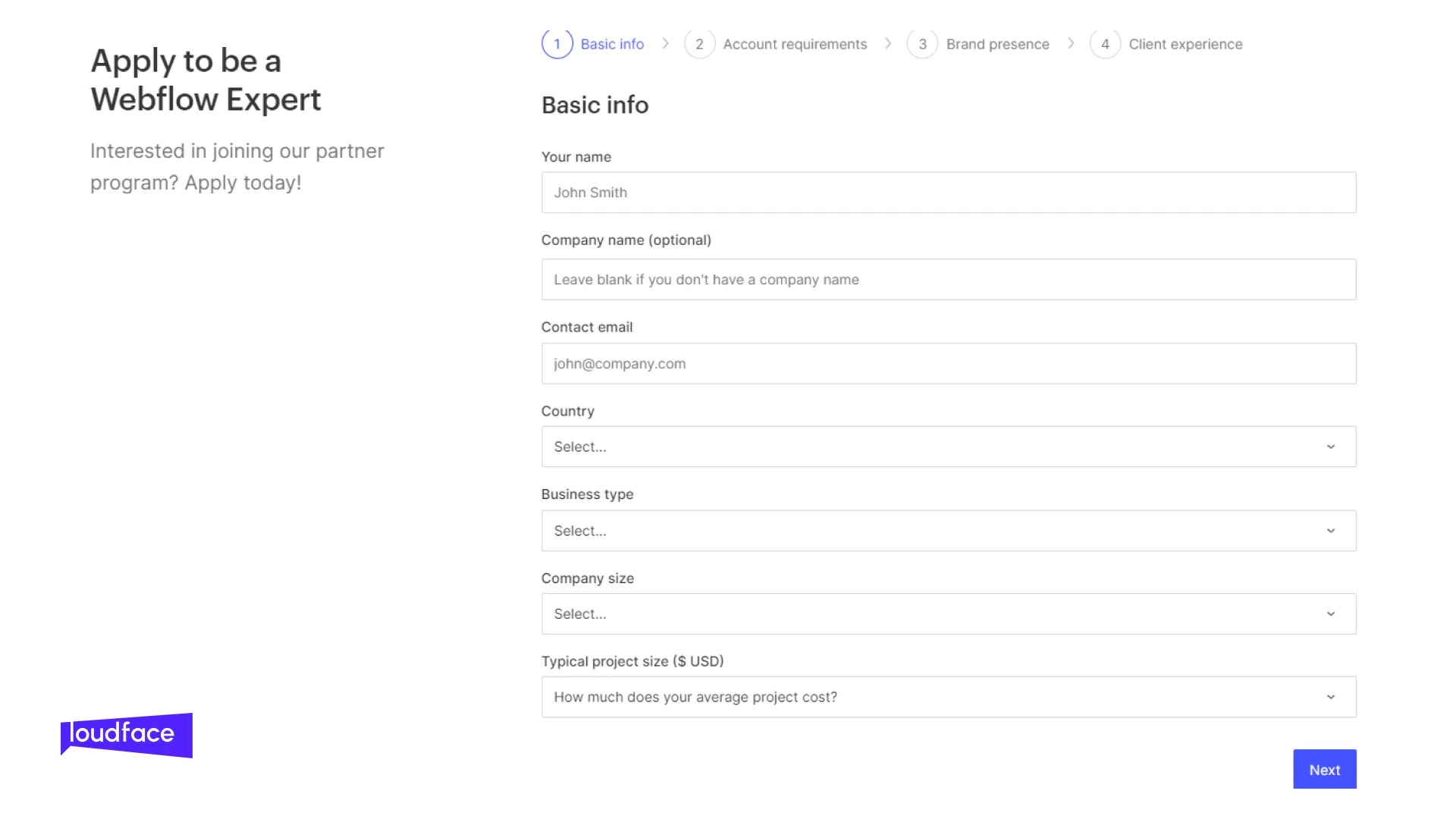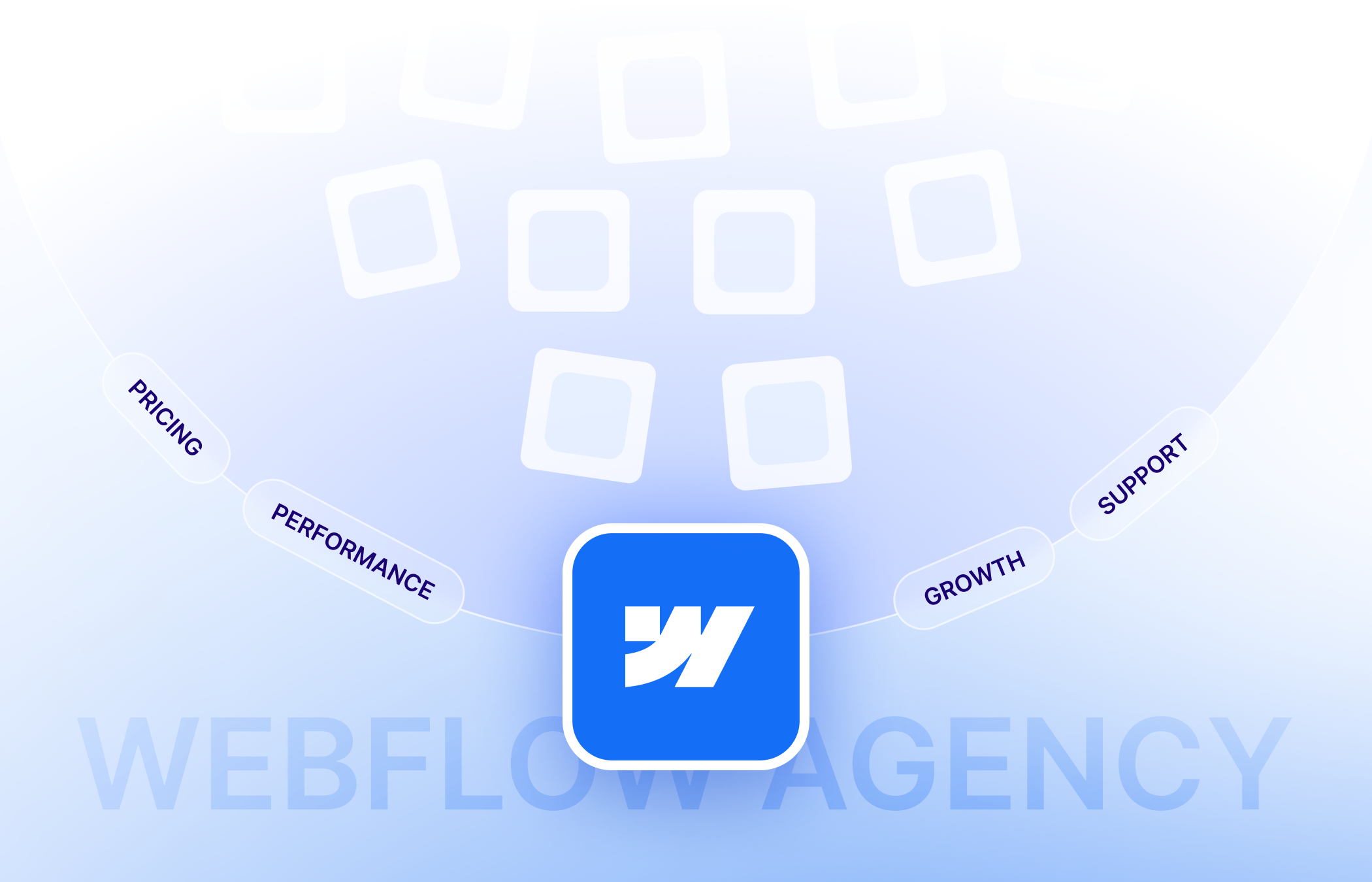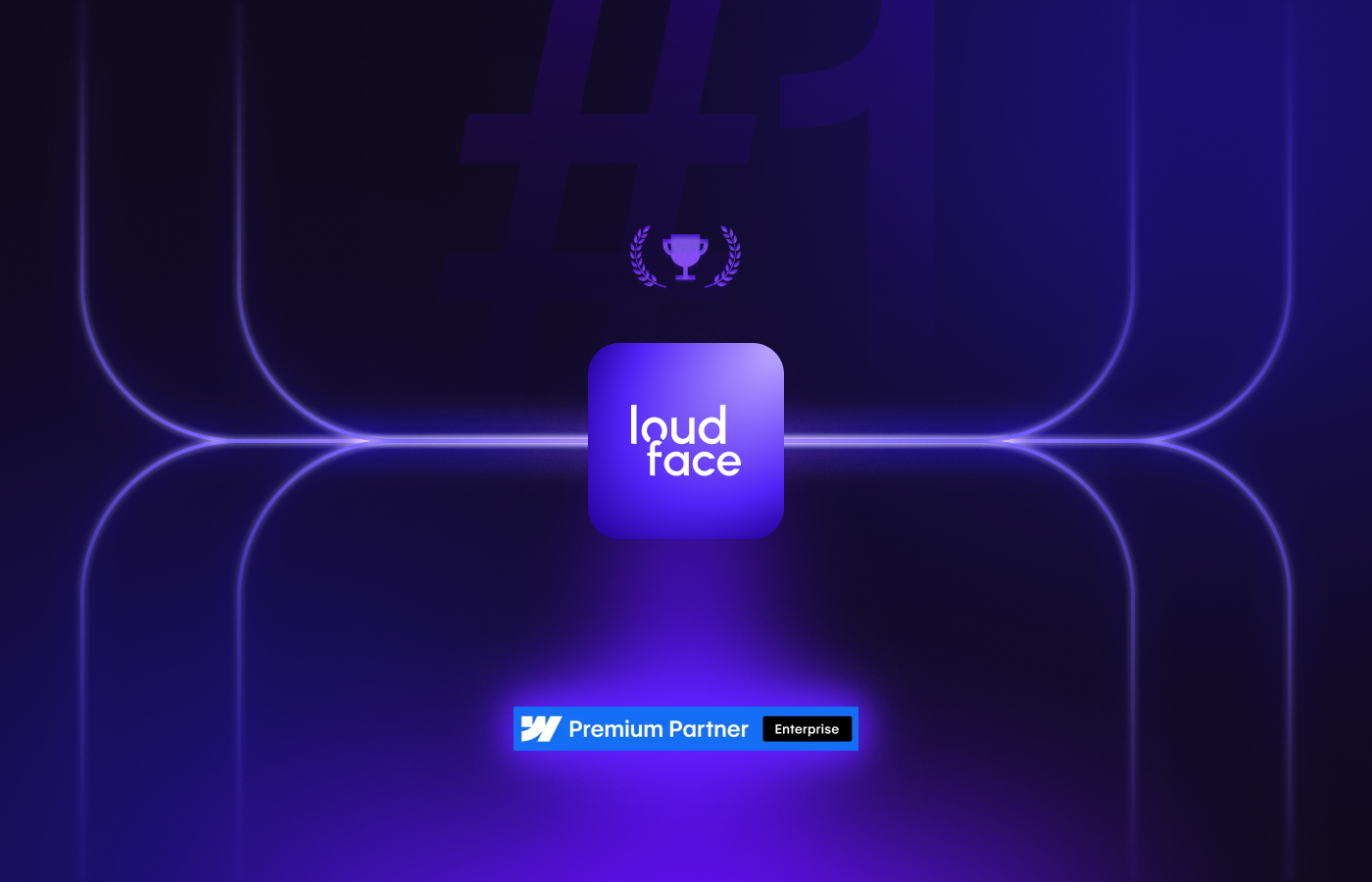Hello there! I'm Arnel, the guy behind LoudFace, and today, let's talk about something that Loudface achieved recently – Webflow Experts and Enterprise Partners.
A Webflow Expert, as the name suggests, is an expert in Webflow. They know how to build a visually appealing, SEO-friendly, and responsive website. To become one, you need a deep understanding of Webflow, a good portfolio of customers, and a Workspace plan.
Stick around, and I'll walk you through everything you need to know about the world of Webflow Experts – from becoming one to hiring one.
Spoiler: it's a mix of learning, practicing, and a whole lot of passion.
What is a Webflow Expert?
A Webflow expert isn't just someone who knows how to use the platform; they are certified partners recognized by Webflow. This certification is earned through a consistent track record of delivering high-quality projects and achieving client satisfaction.
As a Webflow expert and Enterprise Partner, I can vouch for the rigorous process it entails – a badge of honor that signifies trust and expertise in the Webflow community.
Webflow professionals offer a wide array of services beyond basic website design. We're talking about full-scale development, including responsive layouts, integrating advanced functionalities, and ensuring the site is SEO-friendly.
But that's just the tip of the iceberg. Many of us also specialize in digital marketing, ensuring that the websites we build look good and perform well in driving business goals.
How do I become an expert in Webflow?
To become a Webflow expert, master web design and development fundamentals and Webflow University's courses for comprehensive learning. Build a robust portfolio and showcase your projects to qualify for the application. Take the certification exams and other tests to finally get the approval.

Step 1. Path to Becoming a Webflow Expert
To start with, you need a strong foundation in the basics of web design and development. This includes understanding HTML and CSS and having a good grasp of responsive design principles.
Categories of Webflow Experts:
1. Professional Partners: These are usually freelancers or agencies catering to small and mid-market clients.
2. Enterprise Partners: They typically serve larger corporations with more complex needs. They're experts in integrating Webflow into larger marketing ecosystems and often handle more sophisticated projects.
Learning Resources:
Luckily, Webflow University has made a Webflow Experts Course so more developers can learn the craft and earn some dough.
Webflow University is a legit gold mine – it’s where I learned the ropes of advanced layout and interaction design. But don't just stop there.
Online communities are great for picking up tips and tricks from other designers. YouTube is another great resource if you’re a visual learner.
Step 2: Requirements to Become a Webflow Expert
Notes and explanations:
• A certified employee has completed the following certification exams: CMS Level 1, Layout Level 1, Layout Level 2, and Expert certification.
• Webflow case studies are the client showcase on your portfolio website.
• For the Webflow site review test, you must review a production customer site with a Webflow sales engineer.
Source: Apply to Become a Webflow Expert
Step 3: Build a Portfolio as a Webflow Expert
Your portfolio is your ticket to the big leagues. It's not just about showing off pretty designs; it's about showcasing your case studies and how you helped each client.
Start by picking projects that highlight different aspects of your skills. Got a slick e-commerce site? Include it. A visually stunning portfolio website? That's a must. And remember, the story behind the project is just as important as the final product.
Early on, I took on a few pro bono projects for non-profits and local businesses. This helped me build my portfolio and got me valuable client testimonials. Don't underestimate the power of word-of-mouth in this industry.
Step 4: Certification and Recognition
The process is tough but worth it.

Go to the application page and submit your details, such as name, contact, business type, and typical project size (in USD). You must submit a portfolio demonstrating your Webflow design and development expertise.
The Webflow team reviews this based on several criteria: design, layout, responsiveness, accessibility, SEO, and more.
Can you make a career out of Webflow?
Web developers can easily make a lucrative career from Webflow. Being the Webflow Expert and Enterprise Partner gives you access to untapped clients looking for no-code software that could be managed autonomously.
Webflow developers can earn an average salary ranging from $60,000 to $120,000 annually in the United States, depending on experience and location. Freelance Webflow experts can earn even more, especially if they possess niche skills and(or) an impressive portfolio.
I've worked on projects ranging from simple brochure websites for local businesses to complex e-commerce platforms for international brands, including the Radisson Hotels Group.
A 2023 survey indicated a 40% increase in demand for Webflow developers compared to the previous year. This is partly due to Webflow's user-friendly nature, making it a popular choice for businesses looking to manage their websites more autonomously.
You also get several benefits if you go further and become a Webflow Expert.
Note: The revenue share is an amazing benefit. You receive a revenue share on site plans for the first 12 months of each subscription.
Webflow Partners also get access to an exclusive Slack channel where we all are connected for sharing tips and concerns. In this channel, we also receive exclusive news about product updates and upcoming features months before launch, sometimes years before launch.
Frequently Asked Questions
The primary difference between a Webflow Expert and an Enterprise Partner is their client focus and project complexity.
Webflow Experts typically cater to a wide range of clients, including small to mid-market businesses, and offer various web design and development services.
In contrast, Enterprise Partners serves larger corporations with more complex web development needs. They often work on integrating Webflow into broader marketing ecosystems and managing sophisticated projects that may require advanced customizations and integrations.
There are very few Enterprise Partners and the way to get here is by working with a client that has purchased the Webflow Enterprise package and launching that site.
You will also be listed separately on the partner page under the "Enterprise" tag, which is an even better lead source than the expert version due to the scale of those leads.
Yes, Webflow experts can specialize in specific industries. By focusing on particular sectors, such as healthcare, e-commerce, or education, experts can tailor their services to meet unique industry demands.
This specialization often involves understanding industry-specific design trends, compliance requirements, and functionalities. Such expertise enables them to offer more targeted and effective web solutions to businesses within those industries.
Generally, you can become a Webflow Expert within 6 months to a year if you start from scratch and invest enough time. Of course, it can be done faster if you have prior web design and development knowledge. Like any other exam, use the official resources on Webflow University and take the certification exams.







